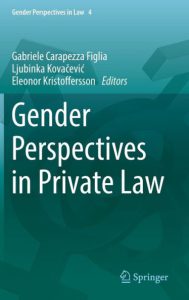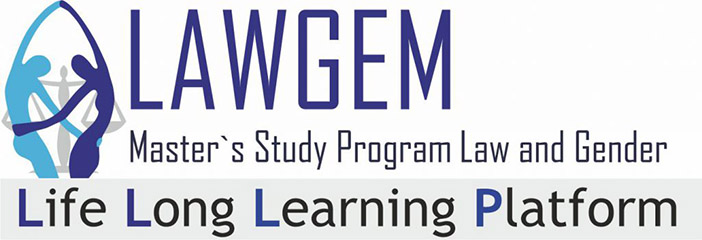The implementation of LAWGEM project has led to the publication of books of great importance not only for teaching staff, but also for legal practitioners, students, as well as anyone else interested in acquiring a better understanding of contemporary gender competent legal questions.
This also relates to the books published by Springer, in the frame of book series ‘Gender Perspectives in Law’, edited by Prof. Dr. Dragica Vujadinović and Prof. Dr. Ivana Krstić. The book series represents the added value to the LAWGEM project and which discusses all-encompassing gender-competent legal questions. Having a gender-competent approach is required when considering the highest values and normative standards of modern international, European, and national law. Raising awareness about gender equality issues means investing in the creation, interpretation, and implementation of legislation that is more fair, just, and equitable and will also contribute to a comprehensive understanding of social reality, as well as to gender-competent political, legal and economic decision-making and public policies.
The fourth book published within the series is the book edited by Gabriele Carapezza Figlia, Ljubinka Kovačević and Eleonor Kristoffersson Gender Perspectives in Private Law (Springer Nature, Cham, 2023, XX +
242 pages). This book discusses prominent and controversial gender-related issues across the fields of family law, tort law, labour law, civil procedure law, ADR and private international law. An important critical assumption made by the authors is that the gender equality perspective has been largely neglected in several branches of private law, since scholars researching the intersection between gender and legal studies are mostly focused on public law and human rights law.
In light of that, the book contributes not only to the deconstruction of gender-blind private law, but also to the development of a gender-competent analysis of the key branches of private law, starting with private international law.
Gender perspective in family law is analyzed on the basis of gendered and heteronormative operations of family law with reference to the formation of legally recognized relationships, the establishment of legal parenthood, the division of marital property after a divorce, and the arrangements for post-separation parenting. Also, regulation of family matters in Indian society and the gender equality perspective from the principle of the child’s best interest are considered. As far as tort law is concerned, the book addresses compensation for damages suffered by women performing unpaid household work. Further, it contains papers dedicated to the following labour law issues: the genesis of labor law and its capacity to contribute either to worsening gender inequality in the world of work or to promoting gender equality; gender segregation in the labour market and its connection to family-friendly policies in the European Union; sexual harassment at work; and the impact of work digitalization on gender-related labour law issues.
Lastly, the authors analyze gender equality in civil procedural law, as well as in mediation as a tool for encouraging the peaceful settlement of disputes. The book is intended to improve awareness of the wide range of private law issues that are important for understanding the ways in which gender inequality shapes everyday experiences, while also presenting critical considerations of the key private law instruments for achieving gender equality You can access the book by clicking this link:
https://link.springer.com/book/10.1007/978-3-031-14092-1


